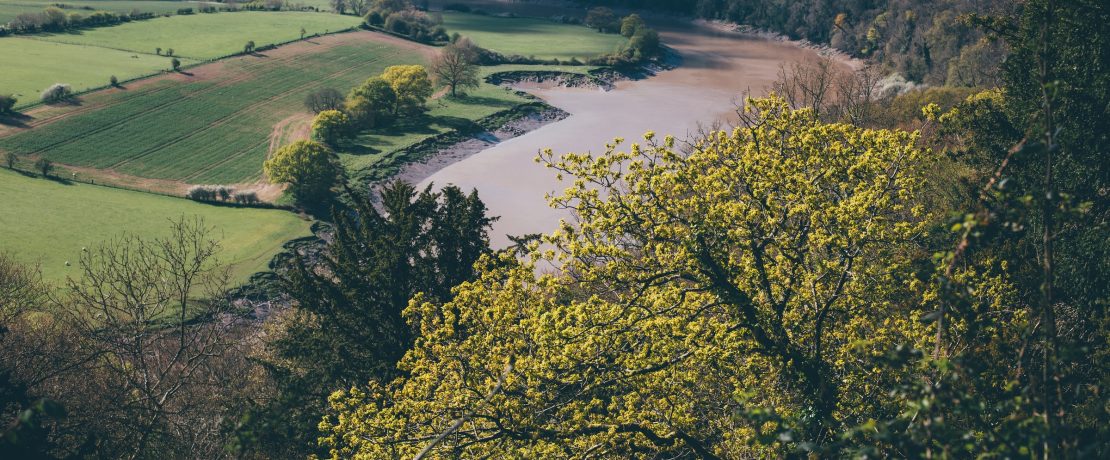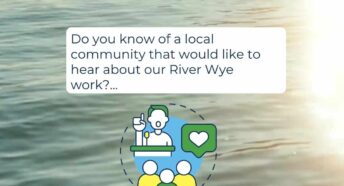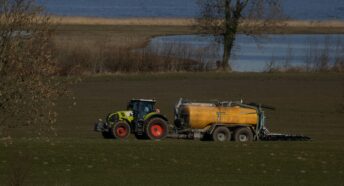Our response to the recent DEFRA River Wye Action Plan
CPRE Herefordshire welcomes the DEFRA interest in the Wye Catchment which we believe to be long overdue.
The Department for agriculture and environmental affairs (DEFRA) released their action plan to save the River Wye on 12th April this year. It has nine main aims to stop further pollution and reverse the damage done. These are listed below:
- Appoint a locally based river champion
- Amend, subject to consultation, the Environment Permitting Regulations
- Help farmers maintain more nutrients and soil in the field
- Support the management of poultry manure by funding poultry manure combusts (PMCs)
- Pilot the use of on farm micro anaerobic digesters (ADs)
- More than double grant approvals for slurry stores
- Work with partners on the Wyescapes and Wye Vally – Ridge to River Landscape Recovery Projects
- Provide funding for at least two projects delivered with local partners in the next financial year
- Cross-border research on mitigating phosphate pollution in the unique geography of the River Wye catchment.
You can read their full plan here.
Our response
Whilst we appreciate DEFRA is concerned with England we would have liked to have seen a joint statement with the Welsh Government as the Wye Catchment spans two countries and a co-ordinated approach is the only way to solve the pollution issues.
The DEFRA paper identifies many of the same issues we have campaigned on but we are now seeing even further pollution not just that of nutrients but ammonia, micro-plastics, sprays and forever chemicals. The DEFRA plan highlights the work having been carried out over years to encourage changing farm practises but does not evidence how effective or otherwise these have been. Many farmers agree there needs to be a regulation baseline firmly understood by all and enforced by the regulators. Effectively a level playing field with all with those not conforming being penalised.
The funding issue
The paper talks much about funding for the farming industry. It is very unclear if this is new money or just a rehash of previously announced Sustainable Farming Incentives (SFI), Environmental Land Management (ELMS) and Landscape Recovery grants.
There is no mention of funding for Citizen Science which is a big disappointment given how much data we are producing for analysis. In the USA and other countries all Citizen Science is funded by the Government.
There is no explicit funding for regulators or suggestion of further powers to police the Wye Catchment. We think this is a serious omission as the EA needs more people and funding for the Wye Catchment to fulfil their role.
River Champion
We welcome the idea of a single person touch point for the catchment but it is still very unclear if this is just England or includes Wales. The role appears to be a political appointment and therefore will most certainly be changed if an election produces a new government later this year. We would have liked to have seen a truly independent and non-political appointment to offer longevity and someone with a closer background fit, perhaps an academic.
Proposals to deal with manure and slurry
The concept of manure being shipped out of the catchment and not spread we fully support but this only works if regulation stops the importation from adjoining counties. This possible scenario is already starting to raise its head. Similarly, we welcome wider buffer zones on rivers but these need to be mandatory not optional. We need more and better regulation in support of any plan. Good environmental farmers need to be compensated for their work.
Funding for incineration is interesting providing stricter air quality is required and mandatory for any developments. We are very suspicious of small Aerobic Digester plants as track records in the county are very poor with spillage and accidents. Farmers are not the people we want running carefully balanced chemical plants. ADs also require more maize and we would be against any expansion of this sometimes-damaging crop. (ADs cannot operate on a small scale with just chicken litter). The final point on ADs is that you are not getting rid of phosphate but concentrating it. The liquid is lethal to water courses and its storage is very difficult and the same applies to the concentrated cake. We do not consider small ADs a reasonable solution unless there are large leaps forward in technology.
Inspection
The inspection regime DEFRA included in their paper is again not sufficient in numbers to make a lasting impact.
Stock reduction
Finally, there is little reference within the papers to phosphate feed input or stock reduction in either poultry, pigs or cattle. The Lancaster University RePhoKus study made a recommendation to reduce Total P in the soils required a stock reduction across the catchment. As a planet we know livestock takes up extraordinary resource and contributes to global warming. We need to incentivise farmers to less intensive animal farming and influence communities to modify their diet.
Summary
The DEFRA paper whilst comprising of one or two encouraging points is as a whole not a plan as it has no timelines for the suggested action points and as such is disappointing.
Currently there are three major plans under construction which do not necessarily merge or have cross border support. The first is a Diffuse Water Protection Plan (DWPP) for England only, which has been instructed by Judicial Review. The Environment Agency (EA) have been charged to produce this. They have only just recruited a person to start the plan. We are told this is the defining plan which all others will follow. The DWPP is not expected to be available until summer 2025. Once this has been completed it will feed into and influence the Nutrient Management Plan which the Nutrient Management Board will publish.
In parallel there is a Wye Catchment Plan (WCP) set up under CaBA that will incorporate much of the other two plans but has much wider scope. This is currently being worked on by the Wye Catchment Partnership with EA funding for input from international advisers Mott McDonald and Imperial College London.
We have always said why not one plan. Several of the contributors on all three plans are in common such as the EA.
All small steps forward are welcome as we will only solve the problems in the Wye Catchment if we park “Blame & Denial” and work together on solutions.
As we understand more fully the intentions of DEFRA we will modify our views and work together to seek out actions that can save the Catchment. No action or delayed action is not an acceptable solution.









